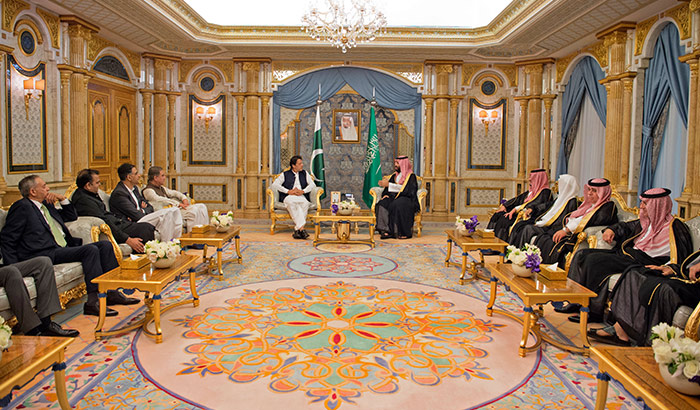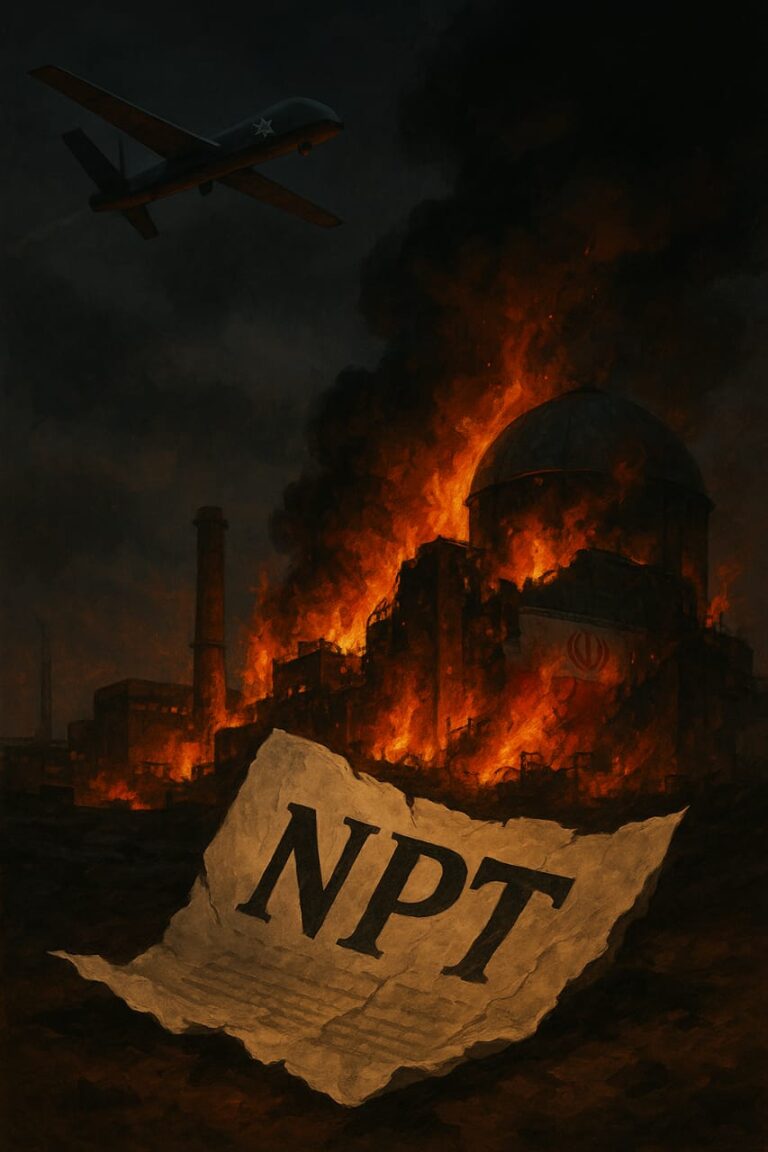
Source:AFP
Riaz Khokhar
One of the key challenges to Pakistan’s foreign policy relates to how it navigates its policy in the volatile Middle East. In this regard, balancing its relations with Saudi Arabia and Iran would be thwarted by the bitter rivalry between the two bastions of the Muslim World. Saudi Arabia had offered $1.5 billion as a “friendly grant” to the former government when Nawaz Sharif became the premier in 2013. Return on that investment is all well known. The question,however is, will KSA’s financial inducement of $1 billion for Imran Khan’s new government and its further pledge of $4 billion by the Islamic Development Bank demand a retune of Pakistan’s Mideast diplomacy in favour of Riyadh?
Iran was uncomfortable with Islamabad at deploying its troops in Saudi Arabia and its former Army Chief, Gen. Raheel Sharif leading the Saudi-led Islamic Military Alliance. Pakistan’s current Army Chief, Gen. Qamar Bajwa recently assured Tehran of Islamabad’s neutrality in the Mideast rivalries conveying that Pakistani forces would never be used against any other state. However, for Pakistan, the challenge to balance relations with its western neighbor is critical now that the KSA has accepted Pakistan’s invitation to invest heavily in the China Pakistan Economic Corridor (CPEC).
Riyadh is an important strategic partner for Islamabad which has always bailed Pakistan out whenever it has faced economic and political constraints in the past. KSA is not only a strong strategic partner of the United States, it is also the third largest exporter of oil to India. With its Vision-2030, KSA is now heading towards liberalizing its society, culture and diversifying its economy. Saudi Arabia’s Vision 2030 reflects determination “to become a global investment powerhouse”. The vision offers “better opportunities for partnerships with the private sector”. It also seeks to ensure that half of the defense production takes place within the country. These elements of the Vision-2030 create opportunities for Pakistani conglomerates, including mining and construction companies, defense manufacturing sector and other industries to internationalize their production activities in the Kingdom. Pakistan’s coastal zone is 990 kilometers long. With the extension of the continental shelf, Pakistan’s maritime zone extends to 350 nautical miles from the coastline. Therefore, Pakistan can also attract investments from mining and exploration companies in the Gulf extracting seabed and subsoil resources from its continental shelf.
Another salient feature of the Vision-2030 related to Pakistan is expansion of the Saudi oil-production giant Aramco into a ‘global industrial conglomerate’ encouraging other major companies to expand overseas. KSA also seeks to position its strategic location as a connecting hub for the three continents of Asia, Africa and Europe. Pakistan provides a crucial geoeconomic bridge for Saudi Arabia to expand the economic outreach of Aramco and other major corporations across South and Central Asia.
Islamabad can also benefit from KSA’s overseas expansion of its economy to seek investment in the CPEC and related development and energy-infrastructure projects. It is therefore favorable for Pakistan that Saudi Arabia is going to be the third economic partner in the CPEC. Convergence of interests of these countries can bring huge dividends.
Saudi Arabia also seeks liberalization of its society through encouraging a degree of women emancipation, promoting its entertainment industry and above all fostering tolerant paradigm of Islam. Arguably, it was largely the historic Saudi financial support that had radicalized a large segment of Pakistani society in the 80s through proliferation of madrassas. KSA’s transformative approach envisions ‘a tolerant country with Islam its constitution and moderation its method’. Islamabad can seek KSA’s political and financial help in reforming its education and madrassah curriculum in line with its National Action Plan and reverse the deep-rooted extremist mindset that still prevails. Such cooperation would help reconstruct the society on moderate, tolerant, and liberal principles of Islam.
Another critical element of the Saudi Vision-2030 for Pakistan’s interest is that the Kingdom has vowed to issue ‘green cards’ within five years with a view to offering more rights to foreigners to live and work in KSA. This shows that the Kingdom is seeking to reduce dependence on unskilled workforce which creates many opportunities as well as challenges for the government of Pakistan. Most of the Pakistani manpower presently working in the Middle East, constitutes an unskilled workforce with a very small segment of professional and skilled workers. Islamabad needs to invest in skill development of its exportable human resource. The government needs to increasingly invest in the knowledge economy and produce more professionals and skilled human resource so that they can compete in the international job market. This will not only reduce unemployment from the country but also enlarge the amount of Pakistan’s national exchequer by increasing remittances.
The United States supports Saudi Arabia’s transformation of the Vision-2030. Islamabad can use the KSA channel to renew its military, economic and cultural ties with Washington.
With respect to India, Pakistan’s military and strategic partnership with the Kingdom has arguably kept Indian strategic influence at bay. It may also be true that New Delhi’s cooperation with the Middle Eastern countries at the moment is limited to securing its energy routes. India has also leased Duqm port from Oman. The port lies in close proximity to the Chabahar and Gwadar ports. In the context of China’s competing ports and naval facilities in the Indian Ocean, Duqm port’s strategic implications cannot be disregarded. It is therefore imperative in this context that Islamabad strengthens its maritime diplomacy with the Gulf countries. Pakistan Navy leads the Combined Task Force-151 of multinational naval forces in the Gulf of Aden. This places Pakistan in a leading position to regulate maritime security affairs.
In so far as the Kashmir issue is concerned, it would be challenging for Islamabad to seek KSA’s support. KSA not only enjoys strategic relations with the United States, it is also quite comfortable with Israel and India’s security concerns. In this context, Pakistan’s Mideast diplomacy must ensure that the implacable antagonism of the Mideast rivals, their ‘competing ideologies, geostrategic designs and economic interests’ in the region do not overshadow its own national interest and security policy objectives. Though Tehran does not offer the magnitude of economic and strategic capital that Riyadh offers to Islamabad, it is an important friend to Pakistan that shares similar security and economic challenges in the region.
It is commendable on part of Premier Imran Khan and the Army Chief, General Bajwa, that they are balancing Islamabad’s relations with a range of Mideast adversaries. Yet, with the growing economic, cultural and strategic ties with KSA and renewed US sanctions on Iran, considerable challenges for Pakistan’s economic and security relations with Iran are likely to surface.
Iran and Pakistan need to grapple with the internal security challenges in Sistan and Balochistan provinces and address other border security concerns. Cross-border terrorism and sectarian rifts are common issues of serious concern. Last but not the least, both the countries need to also work seriously towards increasing their reciprocal investments in CPEC and Chabahar projects.
Thus, Pakistan must find balance between its relationship with Iran and Saudi Arabia in order to effectively deal with its already existing security and economic challenges. It is only through diplomatic adroitness and pragmatism of the leadership can these challenges be tackled.
Riaz Khokhar is a Research Officer at the Center for International Strategic Studies, Islamabad.




